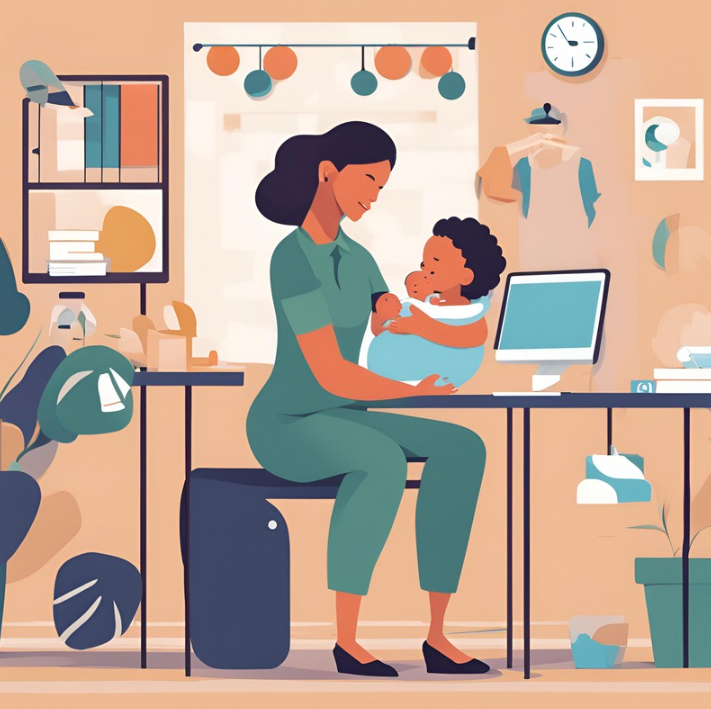- Written by: Chris Wilson
- 3 minute read

Being self-employed brings numerous advantages, such as flexibility and autonomy, but it also means navigating certain benefits, like maternity support, can be a bit more complex.
At Talli, we understand the unique challenges you face and are here to help you make sense of the maternity help available in the UK.
In this post, we’ll cover the differences between Statutory Maternity Pay (SMP) and Maternity Allowance, how to claim Child Benefit, and what other financial assistance is available for childcare.
Statutory Maternity Pay (SMP) vs. Maternity Allowance
One of the main distinctions for self-employed individuals is that they are not eligible for Statutory Maternity Pay (SMP). SMP is a benefit for employees, providing them with a portion of their salary while they are on maternity leave. Instead, self-employed individuals can claim Maternity Allowance.
Maternity Allowance is a tax-free benefit, unlike SMP which is subject to Income Tax and National Insurance deductions.
Maternity Allowance (MA):
- Eligibility: If you’re self-employed, you may be eligible for Maternity Allowance if you have been working for at least 26 weeks out of the 66 weeks before your baby’s due date and have earned at least £30 a week for 13 of those weeks.
- Amount: You can receive up to £184.03 a week for 39 weeks.
- How to Claim: To claim Maternity Allowance, you need to fill out the MA1 form, which is available on the GOV.UK website. You’ll need to provide proof of your earnings and your baby’s due date.
Claiming Child Benefit
Child Benefit is a regular payment from the government to help with the cost of raising a child. Here’s how you can claim it:
Eligibility:
- Anyone responsible for a child under 16 (or under 20 if they stay in approved education or training) can claim Child Benefit.
Amount:
- The current rate is £25.60 per week for the eldest or only child and £16.95 per week for each additional child.
How to Claim:
- You make make a claim online through the GOV.UK website.
Other Financial Assistance for Childcare
In addition to Maternity Allowance and Child Benefit, there are several other forms of financial assistance available to help with childcare costs:
Tax-Free Childcare:
- Eligibility: For working parents, including the self-employed, with children under 12 (or under 17 if disabled).
- How it Works: For every £8 you pay into your online childcare account, the government will add an extra £2, up to £2,000 per child per year (£4,000 for disabled children). You can use this money to pay your approved childcare provider.
- How to Apply: Apply online through the GOV.UK website.
Universal Credit:
- Eligibility: If you’re on a low income or out of work, you may be eligible for Universal Credit, which includes support for childcare costs.
- Amount: You can claim back up to 85% of your childcare costs. The maximum you can receive is £646.35 per month for one child or £1,108.04 per month for two or more children.
- How to Apply: Apply online through the GOV.UK website.
Childcare Vouchers:
- Although the Childcare Voucher scheme is closed to new applicants, those who are already registered can continue to benefit from it. These vouchers allow you to pay for childcare from your pre-tax salary, effectively saving you money.
Conclusion
Understanding the various maternity support options available to self-employed individuals in the UK can help ease some of the financial pressures of starting or growing your family.
At Talli, we’re committed to providing you with the resources, advice, and community support you need to navigate these challenges successfully. If you have any questions or need further guidance, don’t hesitate to reach out to us or join our Facebook community.

